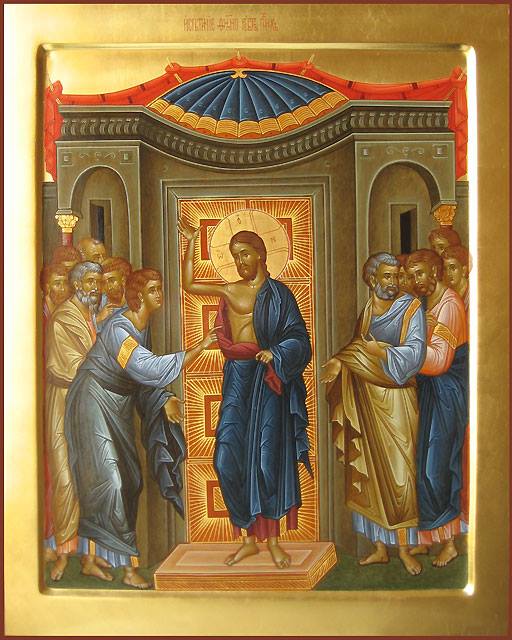 Today is the eighth day of the celebration of the eighth day. Pascha! The Resurrection of our Lord! The Feast of Feasts!
Today is the eighth day of the celebration of the eighth day. Pascha! The Resurrection of our Lord! The Feast of Feasts!
It is a time of absence and presence.
Absence – when the risen Messiah comes to his apostles through locked doors, by divine providence, Thomas is not with them. May he come through the locked doors of our hearts!
Presence – when the risen Messiah comes to Thomas a week later, the doubting apostle gives the proclamation of faith that resounds through the ages: “My Lord and my God!
Absence – when the women come to the tomb, the body of Jesus is not there. “Why do you seek the living among the dead?” the angels ask.
Absence – the disciples on the road to Emmaus do not recognize the Lord.
Presence – they do recognize him in the breaking of the bread, “were our hearts not burning when he explained the Scriptures to us?”
Absence – we do not stand in the presence of the Lord in the same way as the apostles did.
Presence – the Lord is with us in Holy Communion, as he comes to us more intimately than we could imagine.
Absence – “But I tell you the truth, it is better for you that I go. For if I do not go, the Advocate will not come to you” (John 16:7).
Presence – “Then Jesus approached and said to them, “All power in heaven and on earth has been given to me. Go, therefore, and make disciples of all nations, baptizing them in the name of the Father, and of the Son, and of the holy Spirit, teaching them to observe all that I have commanded you. And behold, I am with you always, until the end of the age” (Matthew 28:18-20).
Today the Gospel tells us – “Blessed are those who have not seen and yet have believed” (John 20:29). Our celebration of the Resurrection, therefore, is not simply a historical report or remembrance, it is the truth of God-with-us today, challenging us to live in Christ.
Are not our two Christian greetings exactly the same:
Christ is risen! Indeed, he is risen!
Christ is among us! He is and he will be!
Meditation by Archpriest David Petras
#ByzantineCatholicNewHaven
#StMichaelNewHaven
 UNWLA branch 108 will be taking orders for Ukrainian Easter bread (pascha). They will be available for pick up on April 4 and 5; there will only be a limited amount available so pre-order your paska now. To place an order call or text Anna at 203-506-1818 or e-mail ans51@sbcglobal.net
UNWLA branch 108 will be taking orders for Ukrainian Easter bread (pascha). They will be available for pick up on April 4 and 5; there will only be a limited amount available so pre-order your paska now. To place an order call or text Anna at 203-506-1818 or e-mail ans51@sbcglobal.net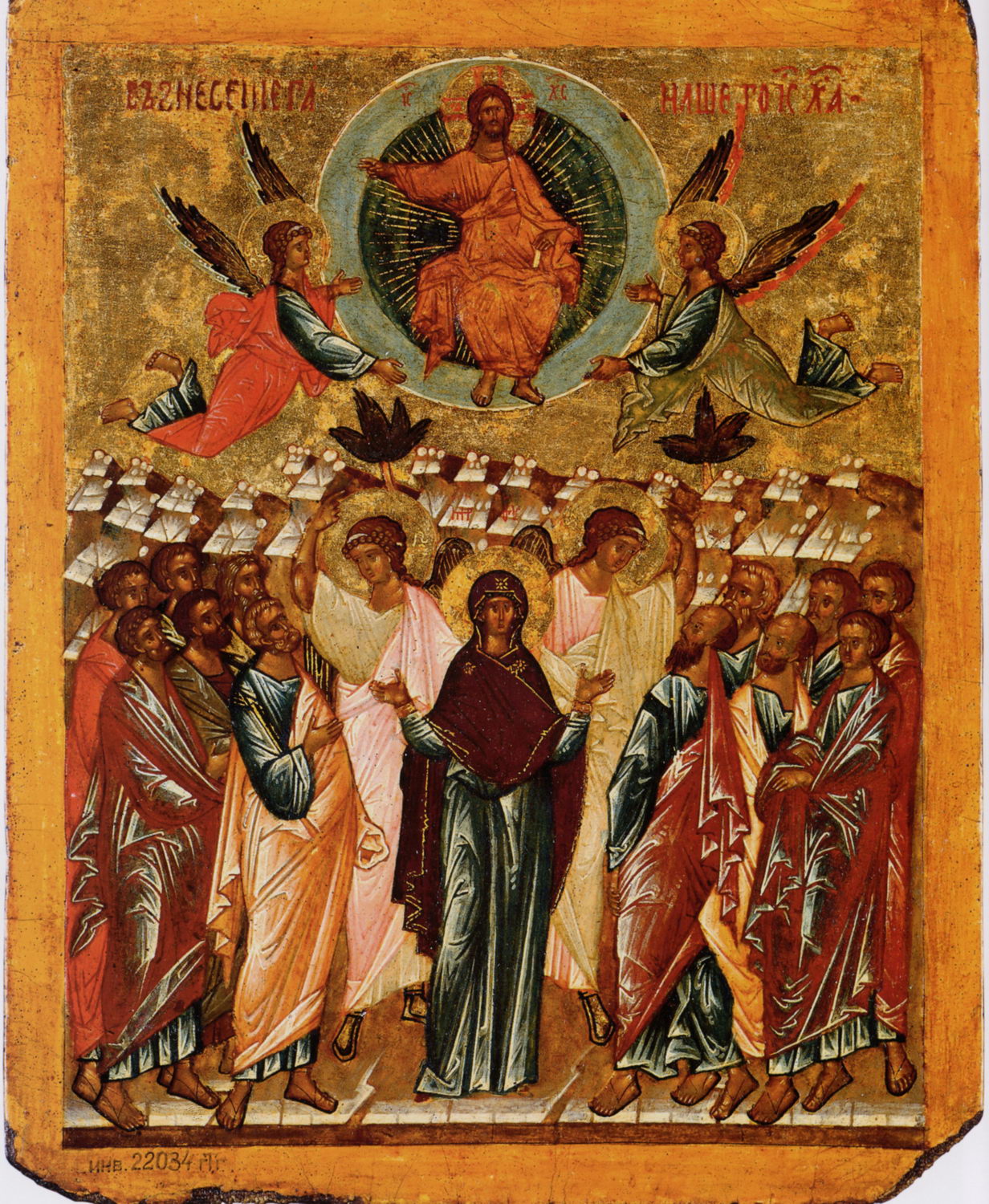 Thursday, 5/30,
Thursday, 5/30, 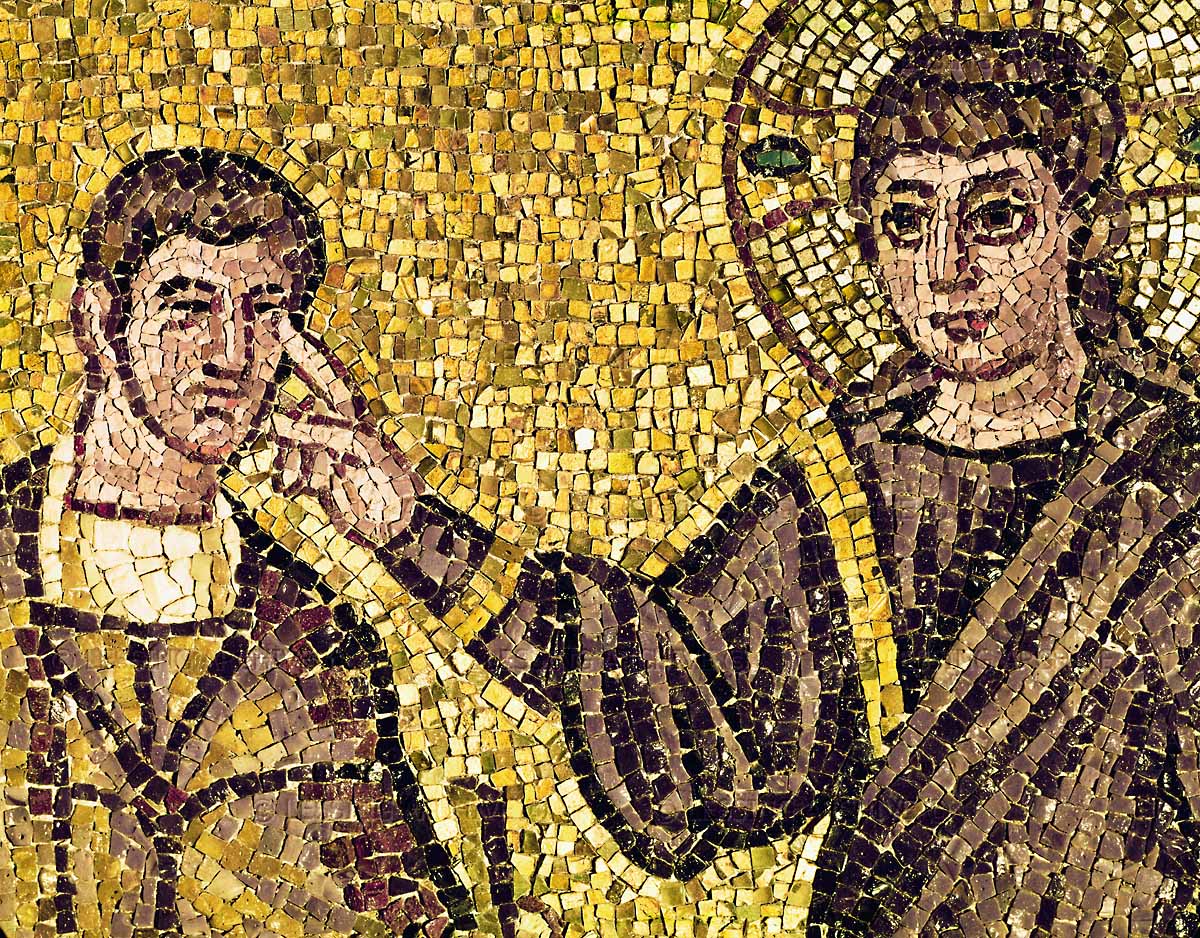
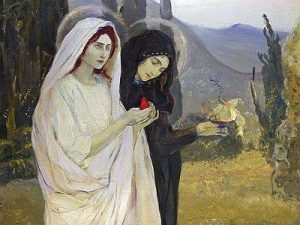 SEEKING THE LIVING AMONG THE DEAD
SEEKING THE LIVING AMONG THE DEAD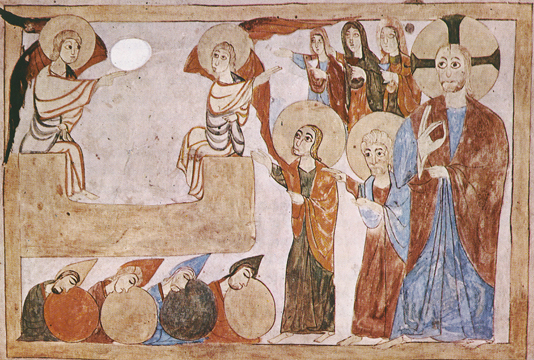 This Sunday presents us with the proclamation of the resurrection according to St. Mark.
This Sunday presents us with the proclamation of the resurrection according to St. Mark. Today is the eighth day of the celebration of the eighth day. Pascha! The Resurrection of our Lord! The Feast of Feasts!
Today is the eighth day of the celebration of the eighth day. Pascha! The Resurrection of our Lord! The Feast of Feasts!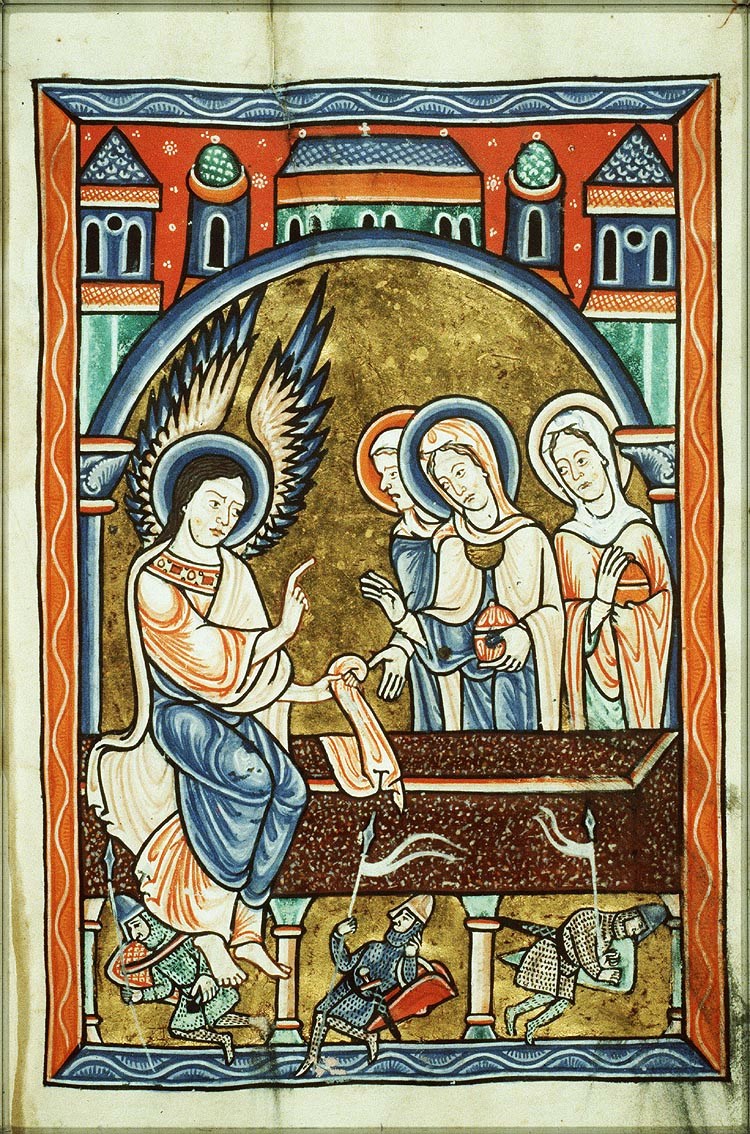 At the Resurrection Matins, there is a procession where the people walk around the church. This procession recalls the way the women went to the tomb. The people stop in front of the Church doors and listen to the priest announce “Christ is Risen!”
At the Resurrection Matins, there is a procession where the people walk around the church. This procession recalls the way the women went to the tomb. The people stop in front of the Church doors and listen to the priest announce “Christ is Risen!”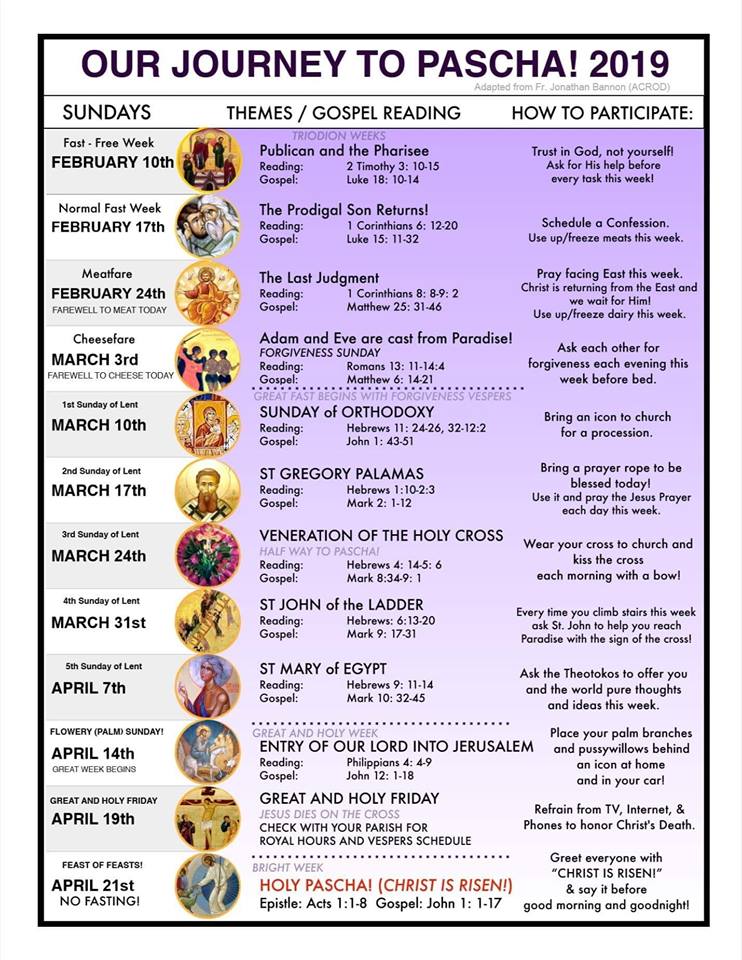
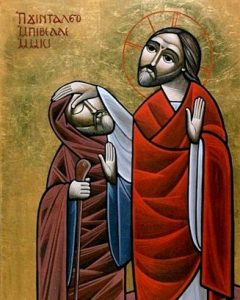 The story of the Man Born Blind is the third Sunday Gospel in Pascha about the mystery of baptism. This gospel is very clear, “Jesus spat on the ground and made clay with the saliva, and smeared the clay on his the blind man’s) eyes, and said to him, “Go wash in the Pool of Siloam” (which means Sent). So he went and washed, and came back able to see” (John 9:6-7). The clay represents the anointing we receive at baptism, making us “Anointed Ones,” (Christs, or Christians) and the washing represents the washing in the water of baptism. The blind man can then see, he is “enlightened,” the name the Church gives to baptism. Two observations: to be truly enlightened, we need humility.
The story of the Man Born Blind is the third Sunday Gospel in Pascha about the mystery of baptism. This gospel is very clear, “Jesus spat on the ground and made clay with the saliva, and smeared the clay on his the blind man’s) eyes, and said to him, “Go wash in the Pool of Siloam” (which means Sent). So he went and washed, and came back able to see” (John 9:6-7). The clay represents the anointing we receive at baptism, making us “Anointed Ones,” (Christs, or Christians) and the washing represents the washing in the water of baptism. The blind man can then see, he is “enlightened,” the name the Church gives to baptism. Two observations: to be truly enlightened, we need humility.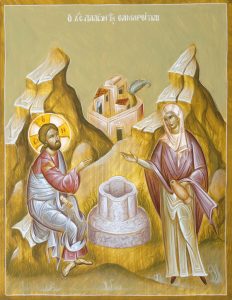 The theme of baptism continues in this Sunday’s Gospel, re-affirming that Pascha is a feast of resurrection and of baptism, being born into eternal life. The center of Jesus’ conversation with this unnamed woman (the Church later gave her the name Photine, the “enlightened woman”) is about water. They met at Jacob’s well, a place of great tradition, a sign and a promise of God’s love and mercy for his people. Jacob’s well provided the riches of water to a desert place, the sign that God would always provide for and bless his people. However, the encounter with the woman reveals something more: Jesus is the Messiah to come, he is greater than the Patriarch Jacob. The water of Jacob’s well is only for this world, Jesus would give “the water that would become a spring of water welling up to eternal life” (John 4:14). This clearly refers to our baptisms, as it comes immediately after the comparison of Jesus with John the Baptist, and the baptisms done by Jesus’ disciples. We renew our baptism every time we receive Communion, and they are for life, for eternal life, from God, the giver of life.
The theme of baptism continues in this Sunday’s Gospel, re-affirming that Pascha is a feast of resurrection and of baptism, being born into eternal life. The center of Jesus’ conversation with this unnamed woman (the Church later gave her the name Photine, the “enlightened woman”) is about water. They met at Jacob’s well, a place of great tradition, a sign and a promise of God’s love and mercy for his people. Jacob’s well provided the riches of water to a desert place, the sign that God would always provide for and bless his people. However, the encounter with the woman reveals something more: Jesus is the Messiah to come, he is greater than the Patriarch Jacob. The water of Jacob’s well is only for this world, Jesus would give “the water that would become a spring of water welling up to eternal life” (John 4:14). This clearly refers to our baptisms, as it comes immediately after the comparison of Jesus with John the Baptist, and the baptisms done by Jesus’ disciples. We renew our baptism every time we receive Communion, and they are for life, for eternal life, from God, the giver of life.